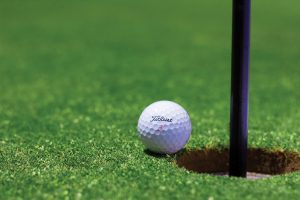In my younger days (when time was a bit more available), I worked on developing my golf game. Golf is sometimes called the great bewitcher and it will suck you in if you let it (stay away from the sport, if you can). For me… it is too late. I love the sport, with all its physical and mental demands! Yes, despite the common perception, the game is physical. But for those who haven’t golfed, the mental demands of the game may be harder for you to understand.
This mental aspect is probably best witnessed and experienced during a high-pressure shot, round, hole, putt, or anytime that comfort level is challenged. Palms can get sweaty, swing speed can pick up, grips can get tight, breathing can get quick, and belief in your skills can get questioned. These clutch moments showed me the level of my mental strength, awareness, and overall skill ownership I needed to be successful. It’s definitely a love-hate relationship.
 While golfing, I was always amazed at the person that wanted to advance the ball 250 yards to a small target without ever addressing it from behind; apparently, those golfers can just “feel it.” I wish I was that good!
While golfing, I was always amazed at the person that wanted to advance the ball 250 yards to a small target without ever addressing it from behind; apparently, those golfers can just “feel it.” I wish I was that good!
I’ve always been more of a deliberate, calculated, and process-driven golfer. When I practiced, I didn’t just smack balls, I wanted to know exactly what my grip was, where the ball placement was, how my swing would start, where my club would be mid-swing, etc. Eventually, I developed a routine and habit that created consistency. I credit that approach to scores in the 70’s and a huge advantage when pressure was added.
With time I became confident that if I focused on my predictable routine while playing an unpredictable round of golf, I would get predictable conclusions, no matter the pressure or the shot. That developed my confidence, trust, and ownership of my skills.
How Behaviors Are Tied to the Question at Hand: How to Become a Better Salesman?
In sales, we can get ahead of ourselves and think too prematurely on results and less on the behaviors that drive those results. A shift of focus on improving the leading indicators (behaviors, attitudes, process) will result in a better trailing indicator (results, scores). Then you have the ability to adjust or correct, which is key to learning how to become a better salesman.
Ask yourself these questions to determine if you are focusing on results or behavior:
- Is the right process in place?
- Are the steps being executed effectively?
- What part of the process/steps needs to be improved?
In my experience, the best people are those that shift their focus from results to the skills, attitudes, and behaviors that create those results.
Establish a consistent process, use it, learn to trust it, own your sales skills, and start getting results that you know you are capable of.




